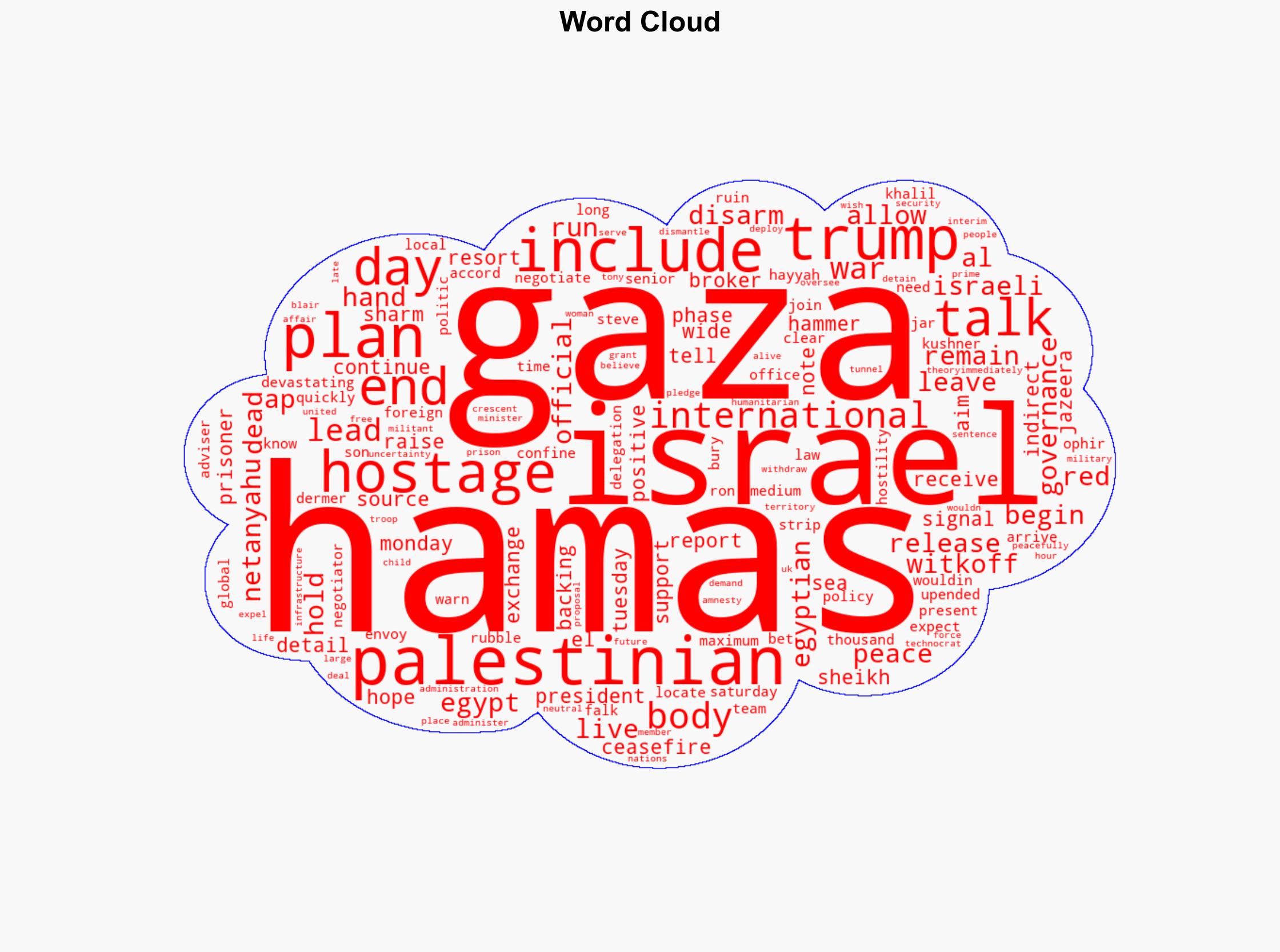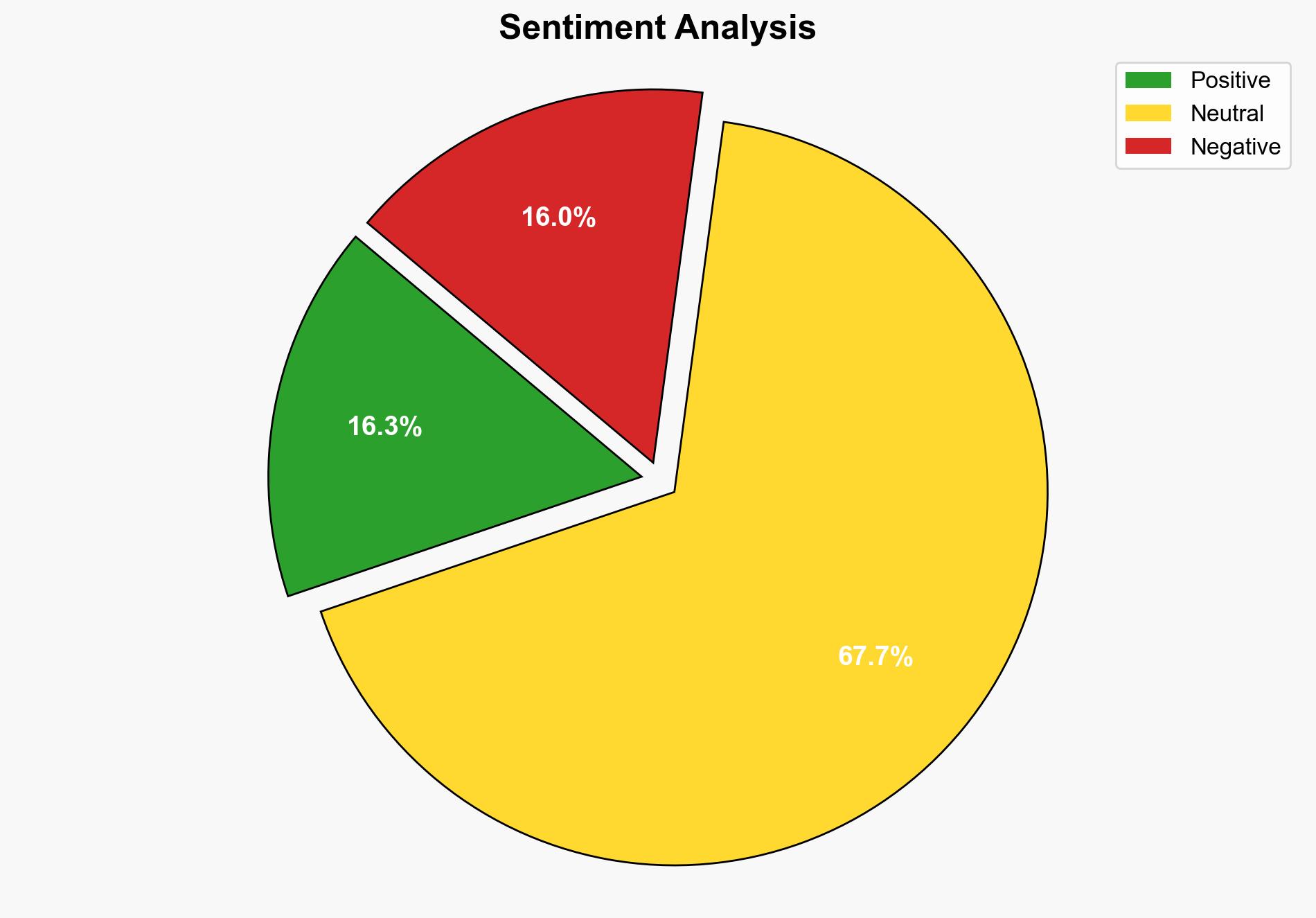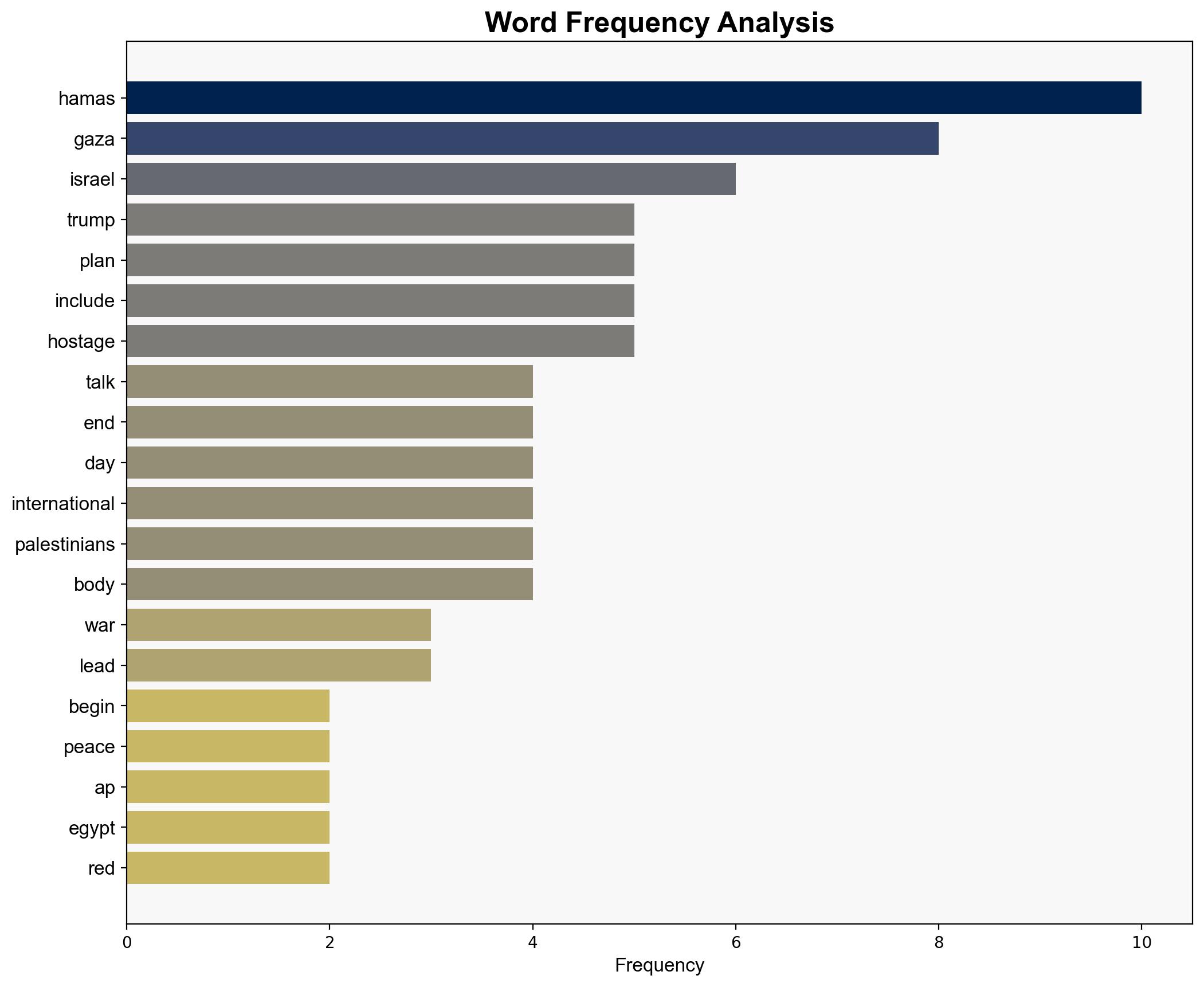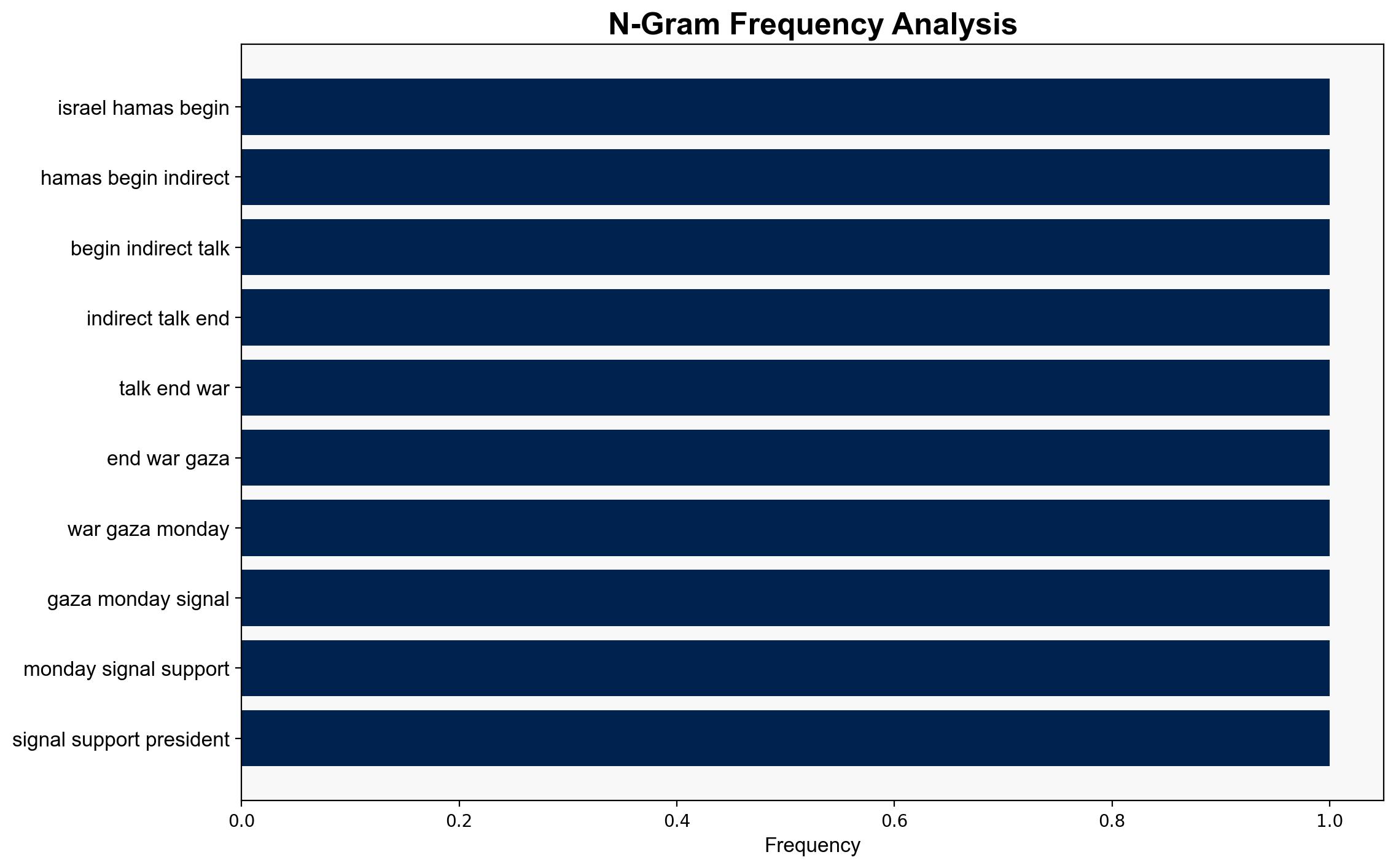Israel Hamas Begin Indirect Ceasefire Talks – Newser
Published on: 2025-10-07
Intelligence Report: Israel Hamas Begin Indirect Ceasefire Talks – Newser
1. BLUF (Bottom Line Up Front)
The most supported hypothesis is that the ceasefire talks between Israel and Hamas, brokered by Egypt, are a genuine attempt to end hostilities, albeit with significant challenges. Confidence in this assessment is moderate due to the complexity and historical volatility of the conflict. Recommended action is to support diplomatic efforts while preparing contingency plans for potential breakdowns in negotiations.
2. Competing Hypotheses
1. **Genuine Peace Effort Hypothesis**: The talks represent a sincere effort by both parties to end the conflict, driven by international pressure and the humanitarian crisis in Gaza. This hypothesis is supported by the involvement of high-profile international figures and the structured nature of the proposed plan.
2. **Strategic Posturing Hypothesis**: The talks are primarily a strategic maneuver by both sides to gain international favor and buy time. This hypothesis is supported by the historical pattern of failed negotiations and the complex demands, such as Hamas disarmament, which may be difficult to achieve.
3. Key Assumptions and Red Flags
– **Assumptions**: The assumption that both parties are negotiating in good faith is critical. Another assumption is that international actors can effectively enforce and oversee any agreement.
– **Red Flags**: The potential for misinformation or deception is high, given the historical context. The complexity of the demands, such as disarmament and governance changes, may be unrealistic.
– **Blind Spots**: The influence of other regional actors, such as Iran or Hezbollah, is not addressed in the intelligence, which could impact the outcome.
4. Implications and Strategic Risks
– **Geopolitical Risks**: A breakdown in talks could lead to renewed hostilities, impacting regional stability and international relations.
– **Economic Risks**: Prolonged conflict could disrupt regional economies and affect global markets, particularly if it escalates.
– **Psychological Risks**: Continued uncertainty may exacerbate tensions among populations, leading to increased radicalization or unrest.
5. Recommendations and Outlook
- Support ongoing diplomatic efforts through multilateral channels to maintain momentum in negotiations.
- Prepare contingency plans for potential escalation, including humanitarian aid and conflict mitigation strategies.
- Best Case: Successful ceasefire and gradual implementation of peace plan, leading to regional stability.
- Worst Case: Talks collapse, leading to intensified conflict and regional destabilization.
- Most Likely: Prolonged negotiations with intermittent progress and setbacks.
6. Key Individuals and Entities
– Steve Witkoff
– Jared Kushner
– Ron Dermer
– Khalil al-Hayyah
– Ophir Falk
– Tony Blair
7. Thematic Tags
national security threats, cybersecurity, counter-terrorism, regional focus





